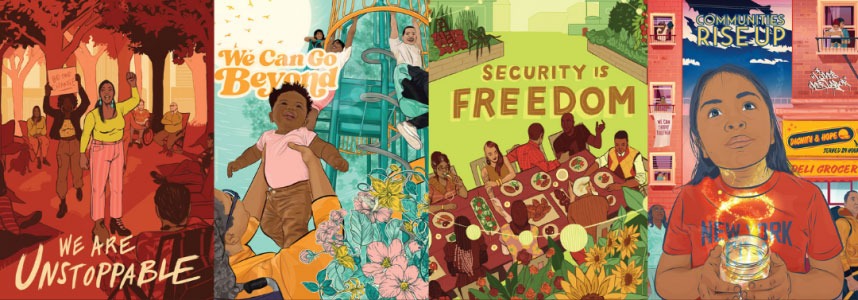
Two organizations dedicated to supporting nonprofits as they shape social justice narratives have partnered to distribute lesson plans and discussion guides to promote hard conversations on economic justice in our schools and our communities. They are following a long tradition across the world of amplifying voices through striking visual imagery in the hope of transforming the narrative from hopelessness to action with a purpose.
Last week, the Opportunity Agenda and Amplifier launched the We Can Thrive Together: Visioning Economic Justice for All initiative, a set of materials and guided questions that focus on the intersection between economic justice, systemic racism, and inequity, acknowledging that talking about pervasive poverty can be quite difficult. Four original works of art by Rommy Torrico and Noa Denmon were commissioned to accompany the guide and help people visualize and inspire conversations about the world we want.
Elizabeth Johnsen, communications and editorial director at the Opportunity Agenda, says that poverty and inequity are often seen as unsurmountable problems, and she hopes the “We Can Thrive Together” materials can help change that.
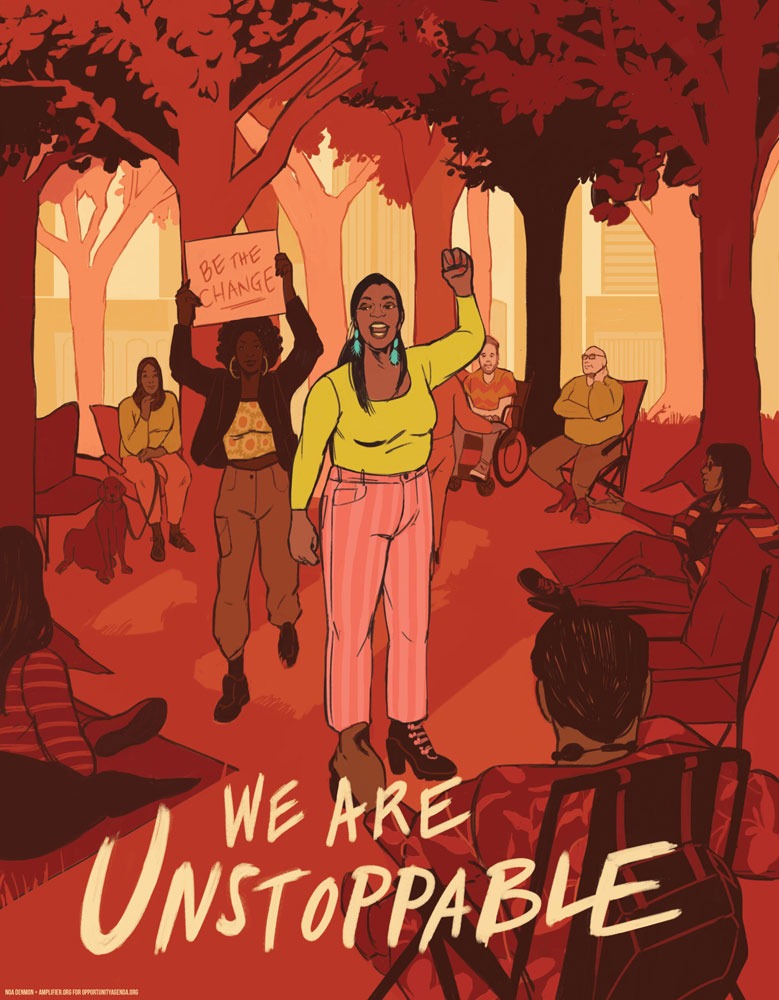
“Part of our theory of change is that we do need to use art and culture as an entry point to really show the affirmative,” says Johnsen. “What does a world that is economically just look like—that is inclusive, that is racially just. What does that look like?”
The messaging guide was created through active listening and focus groups around four core values: voice (having a say in the decisions that affect you); community (recognizing that we should work together and support each other); opportunity (the chance to reach your dreams and go far in life); and security (having all your basic needs met).
Sign up for our free newsletters
Subscribe to NPQ's newsletters to have our top stories delivered directly to your inbox.
By signing up, you agree to our privacy policy and terms of use, and to receive messages from NPQ and our partners.
The artwork by Torrico and Denmon presents a world of abundance, security, inclusion, and freedom of creative opportunity to counteract the capitalist agenda of scarcity, individualism, and competition. Its premise is that in order to build an economically just society, we must first “start visioning a world where these shared values can thrive.”
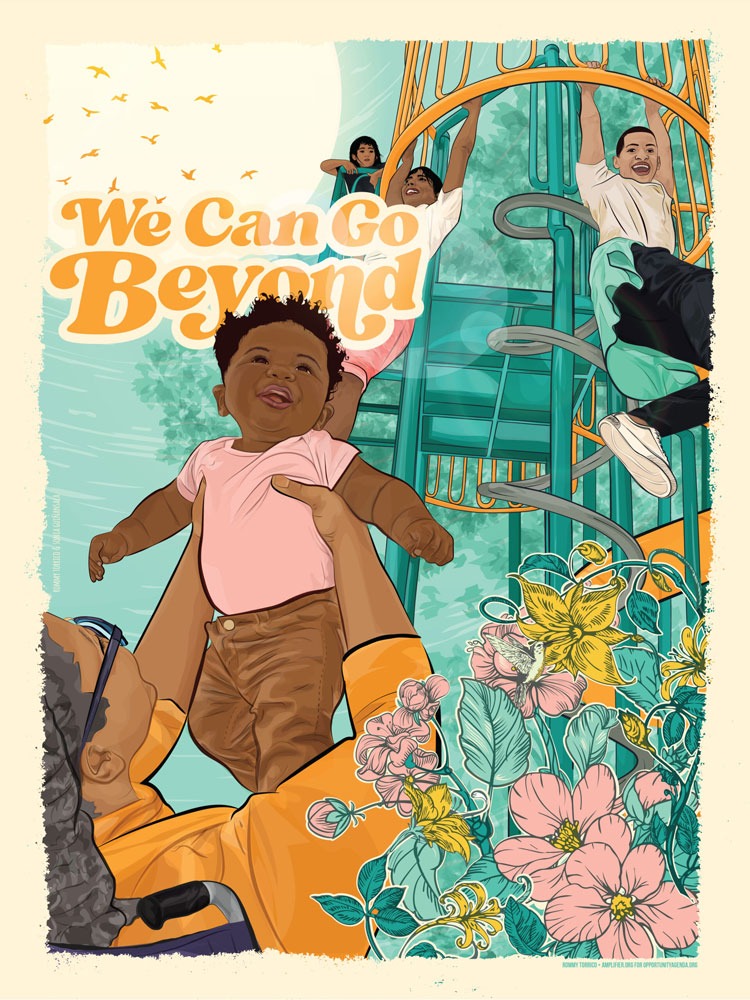
As a communications resource center, the Opportunity Agenda has a research team that conducts polling, focus groups, social (media) listening, and historical analysis into crafting messaging and shaping public opinion. Their partner for this project, Amplifier, is a design lab based in Seattle that partners with artists, advocates, and teachers around the country to amplify social movements. You might recognize one of their most famous contributing members: Shepard Fairey.
“For me culture shift, art, and music are so important to a movement. They are essential in my mind,” notes Johnsen. “If we look back, from the AIDS quilt to the historical civil rights marches and the use of song, all of that was pivotal to a culture shift. And you cannot have a policy shift without a culture shift first.”
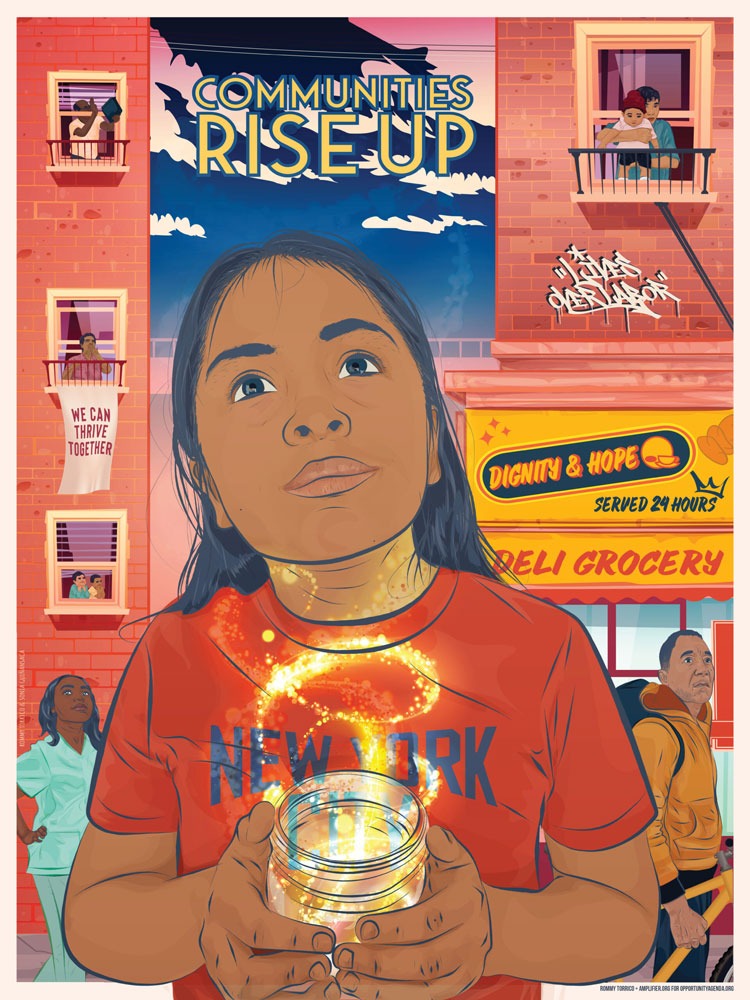
The goal is to distribute these materials to 15,000 teachers, 5,000 parents, and 15,000 advocates around the country. They are available for free online, including the four art works, and are also being distributed through direct partnerships with local schools and advocacy organizations. So far, the parent guide has had the most downloads, which speaks to the need of parents for guidance on difficult conversations with their remote schoolers in the current moment.
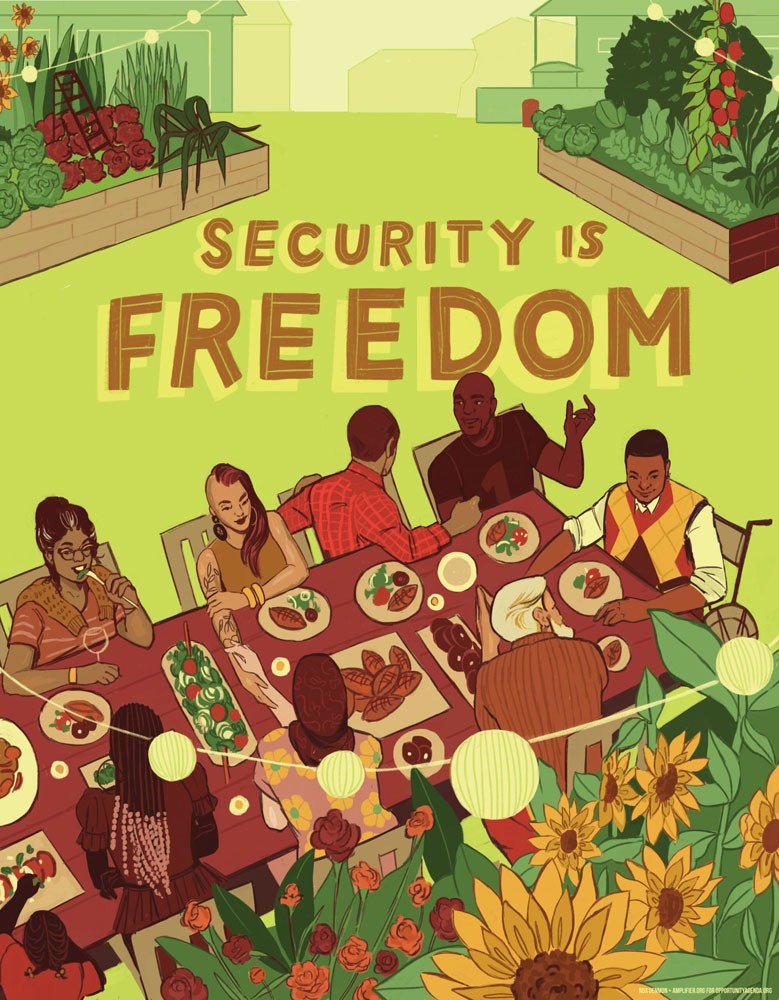
A second phase is already in the works to widen dissemination outreach, including commissioning more illustrators and through webinars and guided dialogue.
“We want to go beyond the typical economic solutions we’ve seen in the past because if we’ve learned anything from last year is that those are not good enough,” says Johnsen. “We want to inspire a national conversation on expansive thinking around economic justice that helps advocates get untangled from the policy debate weeds and focus on visionary solutions.”—Sofia Jarrin











